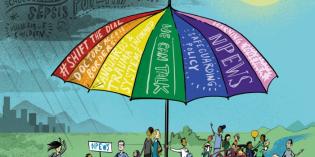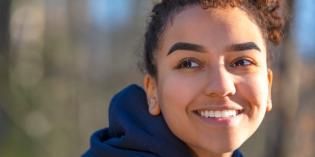Lead investigator
Dr Rachel Knowles
Life Course Epidemiology and Biostatistics
UCL Great Ormond Street Institute of Child Health
30 Guilford Street
London WC1N 1EH
Email: rachel.knowles6@nhs.net
About the study
Microcephaly describes a baby with a ‘small head’, who has experienced poor head growth before or after birth. Severe microcephaly is defined by the World Health Organization (WHO) as a head circumference more than three standard deviations below the mean for age and sex. This rare condition may be associated with abnormal brain structure or neurodevelopment, and with disability, although some babies will develop normally.
Many different causes of microcephaly have been described, including genetic disorders, exposure during pregnancy to environmental toxins, certain drugs, infection or malnutrition. Two important infections in the mother that may cause microcephaly are rubella (German measles) and Zika virus.
You can download the protocol card, including references, below.
Case definition
Any born child aged up to and including 12 months of age who:
- has been diagnosed with microcephaly in the past month and / or
- is noted to have a head circumference that is:
- more than three standard deviations below the mean for gestational age and sex, or below the 0.4th percentile for age and sex.*
*Use your standard growth chart.
Excluding: Please do not report babies with anencephaly.
Reporting instructions
Please report any child seen in the UK or Republic of Ireland in the last month who meets the case definition.
Duration
October 2017 to October 2018 (13 months of surveillance). Follow-up until October 2020 (2 year follow-up).
Funding
The study is funded by Great Ormond Street Hospital Children’s Charity.
Approval
The study has been approved by East of Scotland Research Ethics Committee (reference: 17/ES/088); HRA Confidentiality Advisory Group (reference: 17/CAG/0126); and the Scottish Public Benefit and Privacy Panel (reference: 1718/0184).
Privacy notice
University College London Great Ormond Street Institute for Child Health (UCL GOS ICH) is the sponsor and data controller for this research study. The Data Protection Officer at UCL can be contacted at data-protection@ucl.ac.uk.
The study team at UCL GOS ICH will use information from medical records for a medical research study. The lawful basis for collecting and using personal information in this study is article 6(1)(e) and article 9(2)(j) of the GDPR which allows us to process personal data when it is for scientific research in the public interest. We will collect information about children with a new diagnosis of severe microcephaly from the doctors who are looking after them. Doctors will not provide identifying information, like names and addresses, but they will provide personal information like sex, ethnic group and date of birth. The smallest amount of personal information will be used. We cannot withdraw or remove information from the study but personal information will be deleted or de-personalised when the study finishes. UCL GOS ICH will securely store this information for 20 years.
If you want access to the information in your child’s NHS records, then you should contact your child’s NHS hospital/doctor.
If you want to find out more about how personal information is used in the study, please contact rachel.knowles6@nhs.net.
If you wish to complain about the use of your personal information, then you should contact the Information Commissioner’s Office:
Information Commissioner’s Office
Wycliffe House, Water Lane
Wilmslow
Cheshire
SK9 5AF
Helpline number: 0303 123 1113
Email: casework@ico.org.uk










